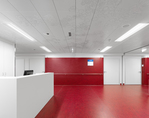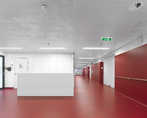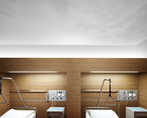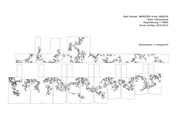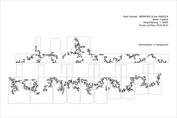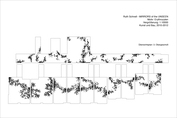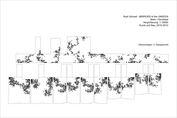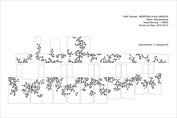Site specific ceiling drawing
Regional hospital Hohenems (A), competition
The work Mirrors of the Unseen for the regional hospital Hohenems deals with technically generated images, with questions of translatability and the interpretation of information.
The motifs are spread over five floors on the corridors and patient-room ceilings refer to visualization methods used in the medical field. Their visual content refers to "structures of life" – microscopic images of cells, platelets and the body's own bacteria that are abstracted through scaling, image processing and rearrangement. The ornamental formations meander across the ceilings like a drawing, seemingly transcending the boundaries between patient rooms and corridors.
If the gaze follows the lines and interweavings, the ornaments become a form, a view into a "cosmos of the invisible". Therefore, the observer can situate herself/himself as an observer or as being inside the picture.
The work consciously refers to the visualization techniques of the Renaissance painting, in particular to the perspectives and constructions of depth known as trompe l'oeil. If in trompe l'oeil paintings the pseudo-architectural view expands mostly into the sky or into Arcadian landscapes, here the viewers look into an inward dimension, into a microscopic world, nevertheless abstracted again.
 Images
Images
